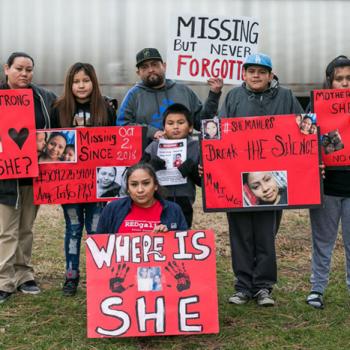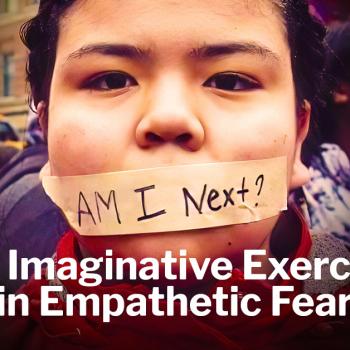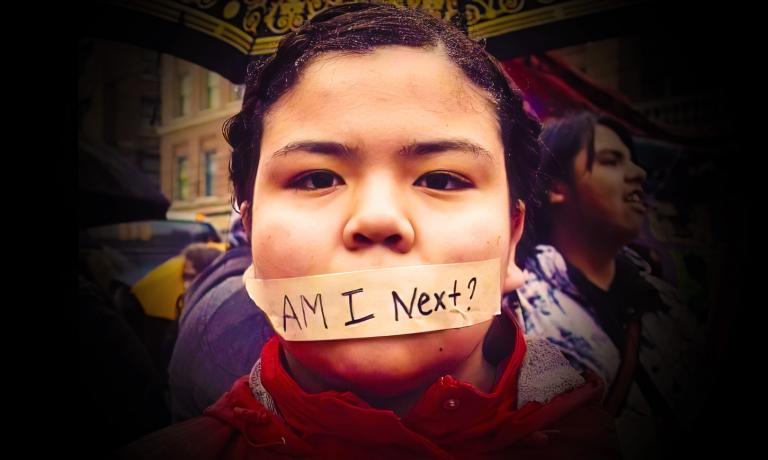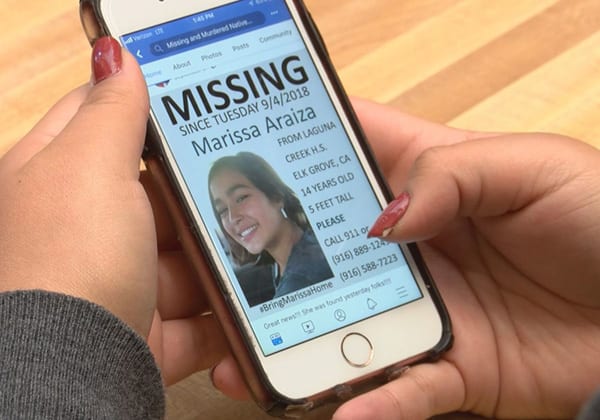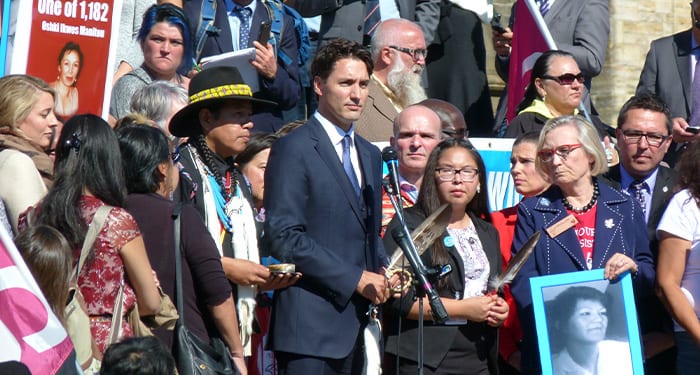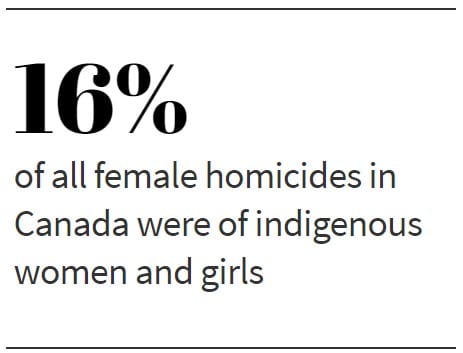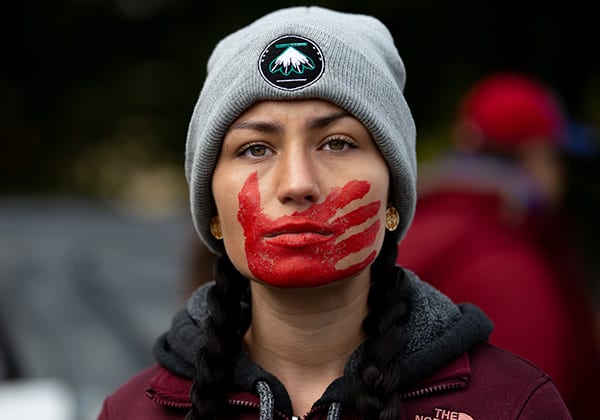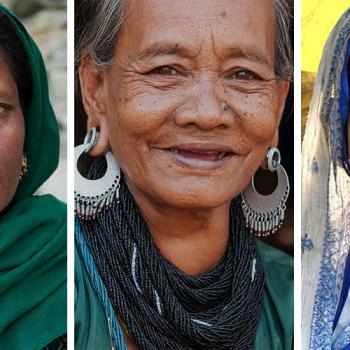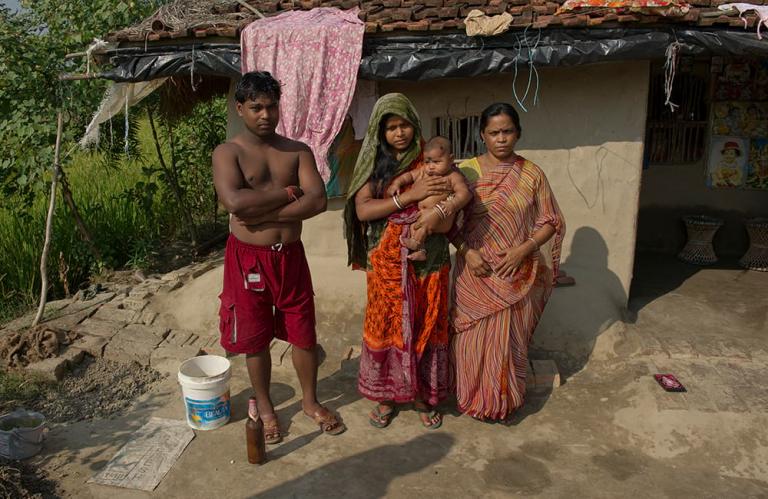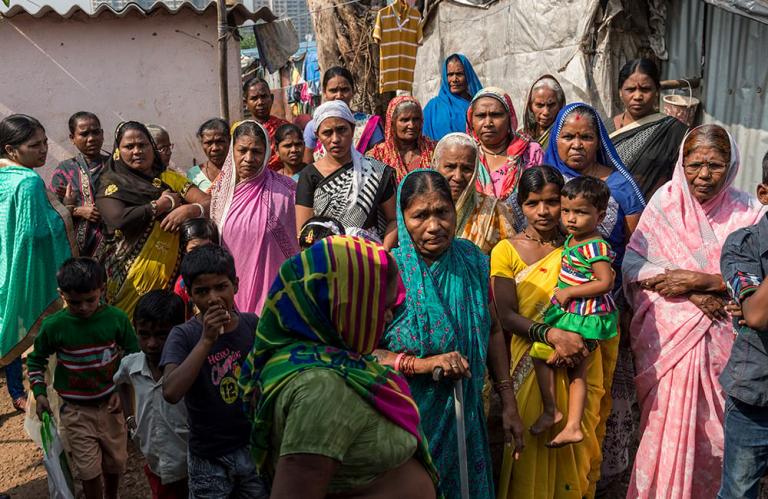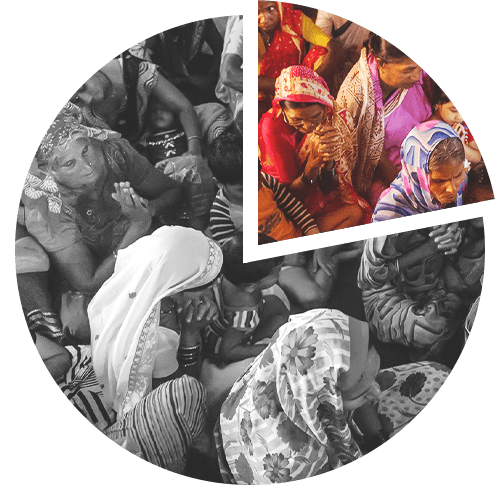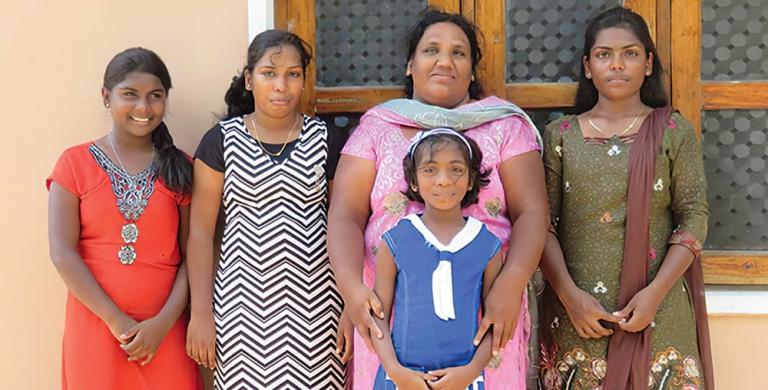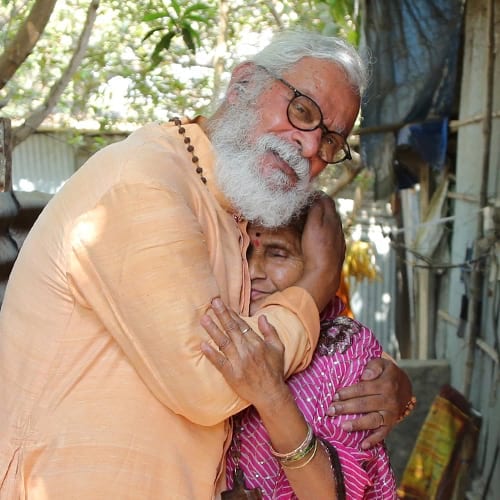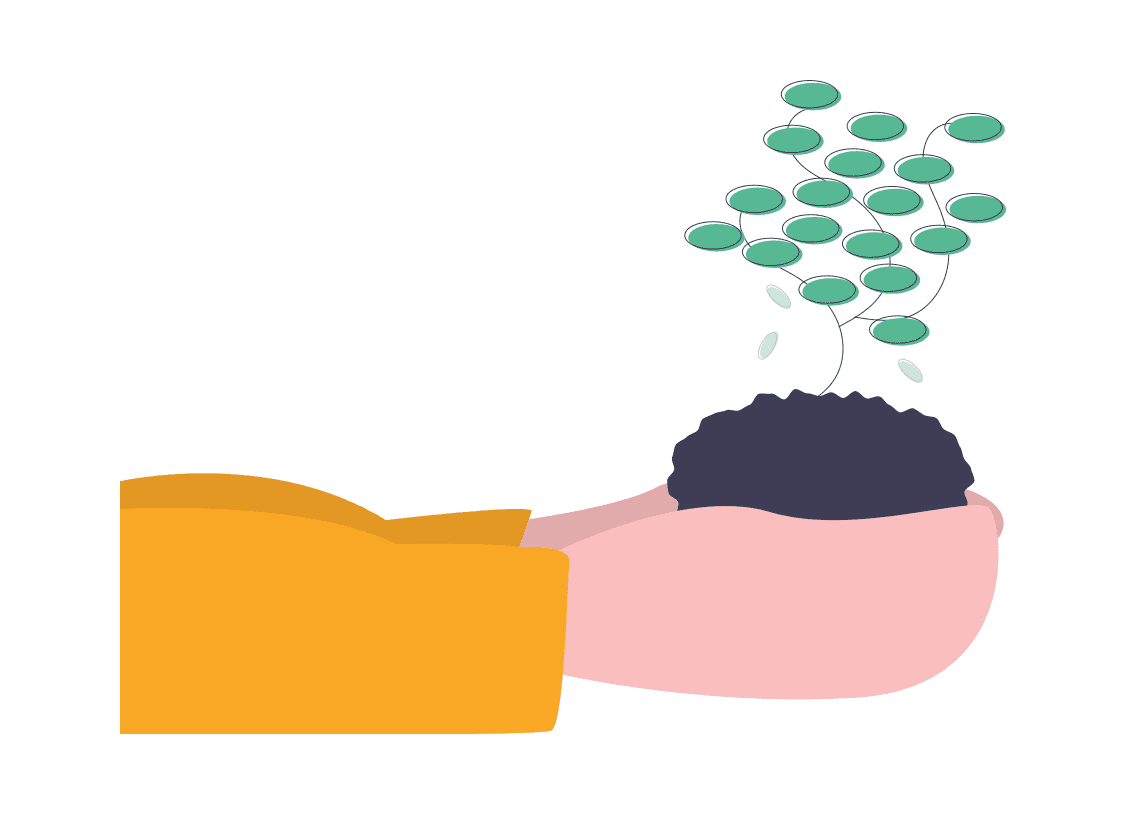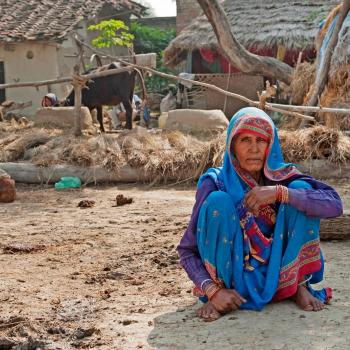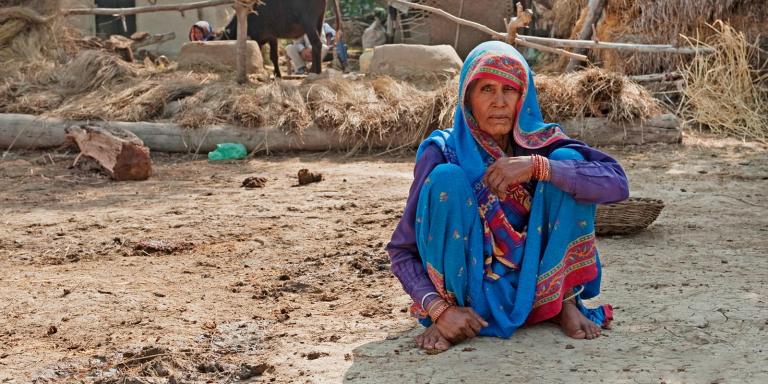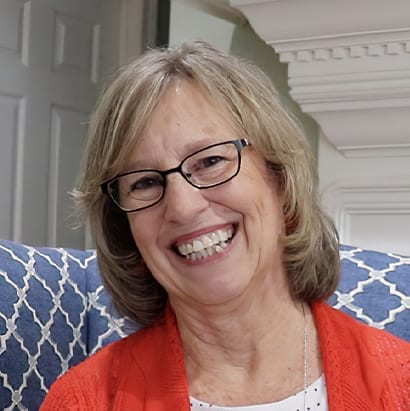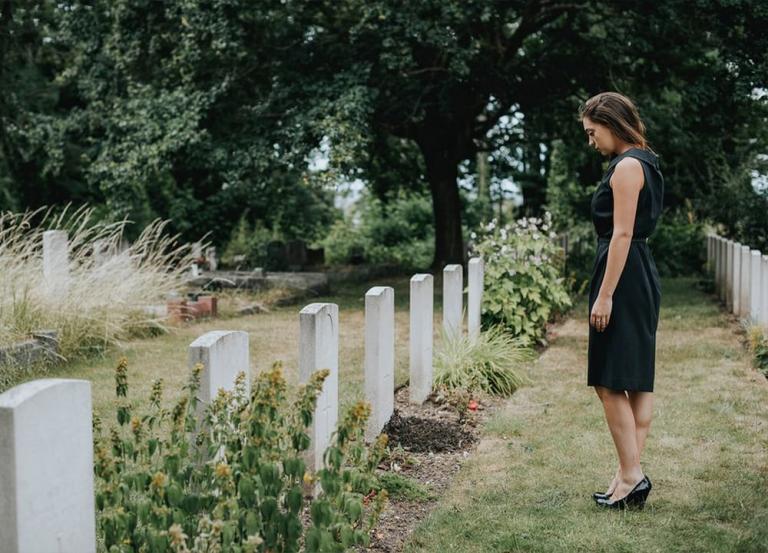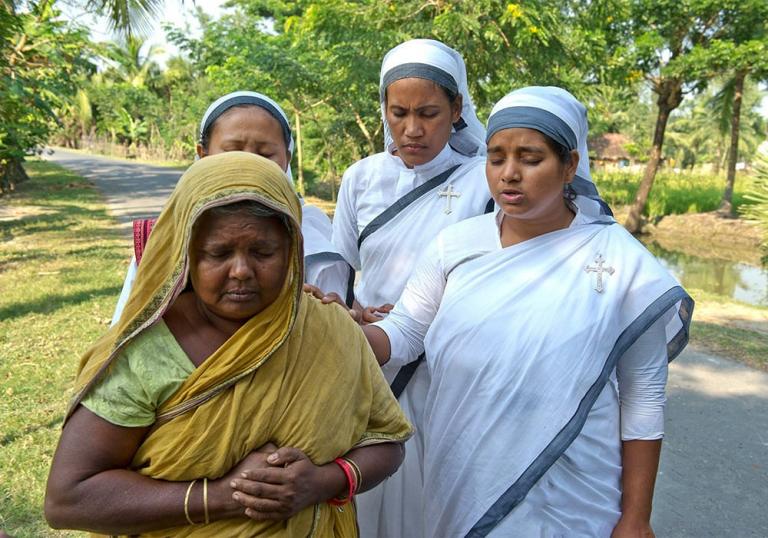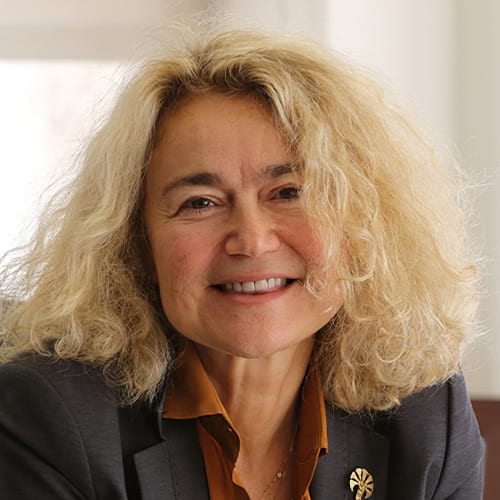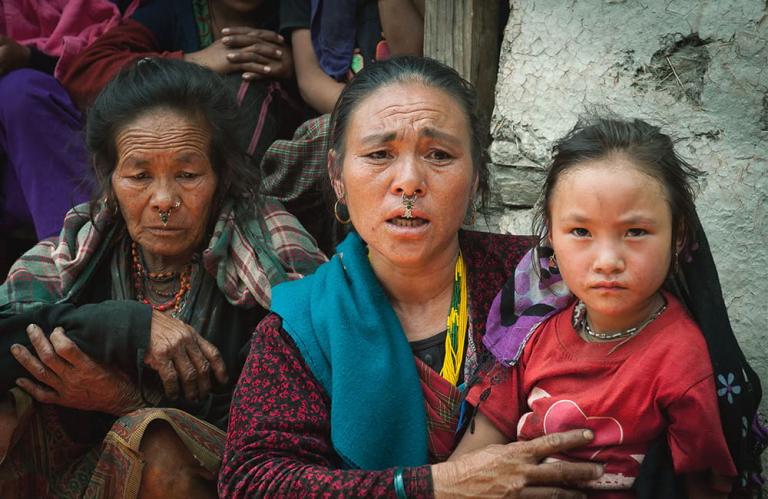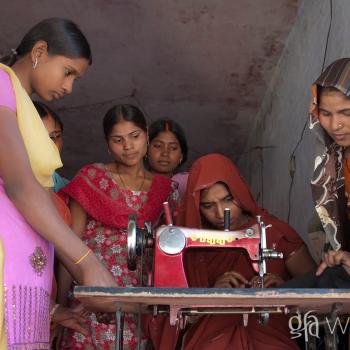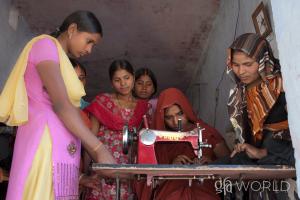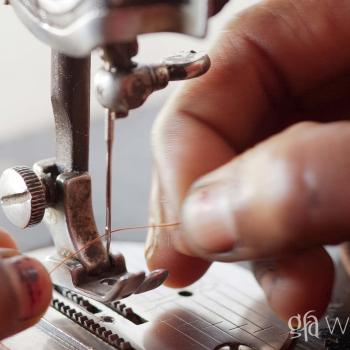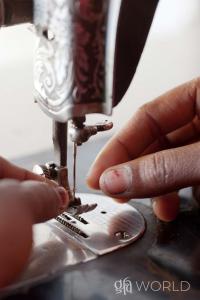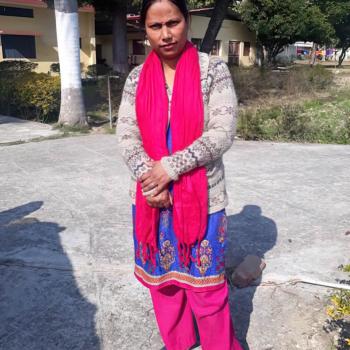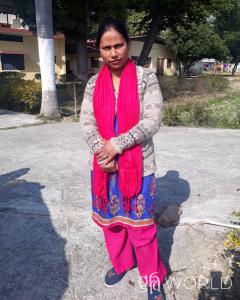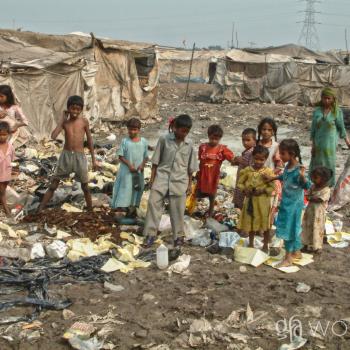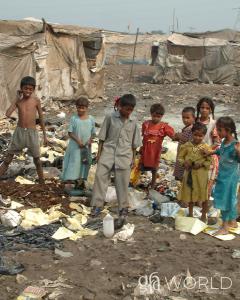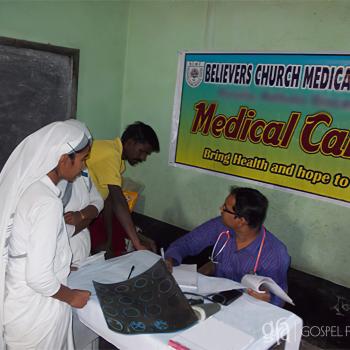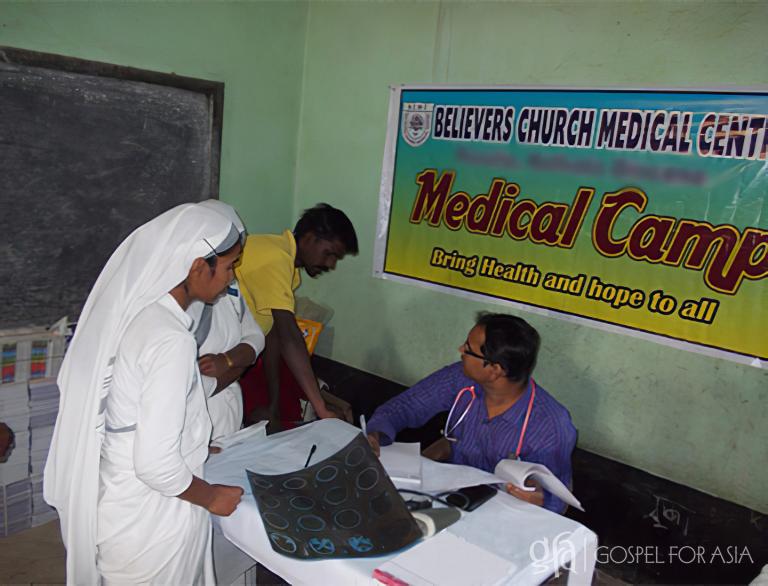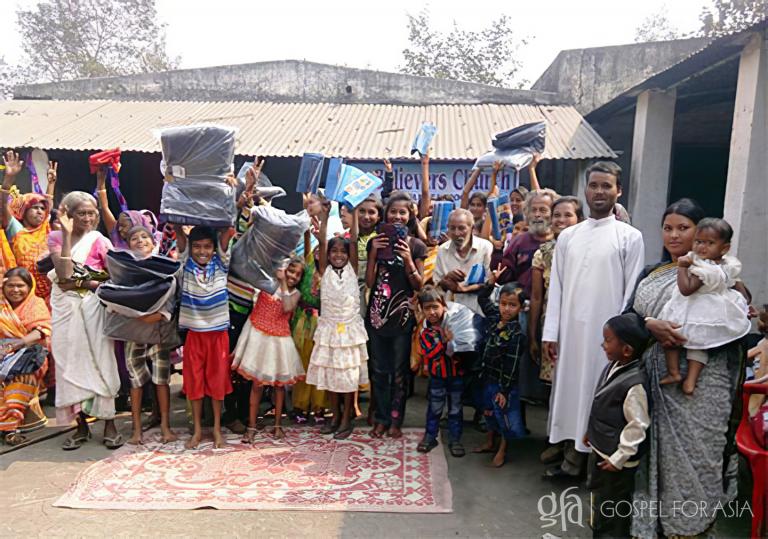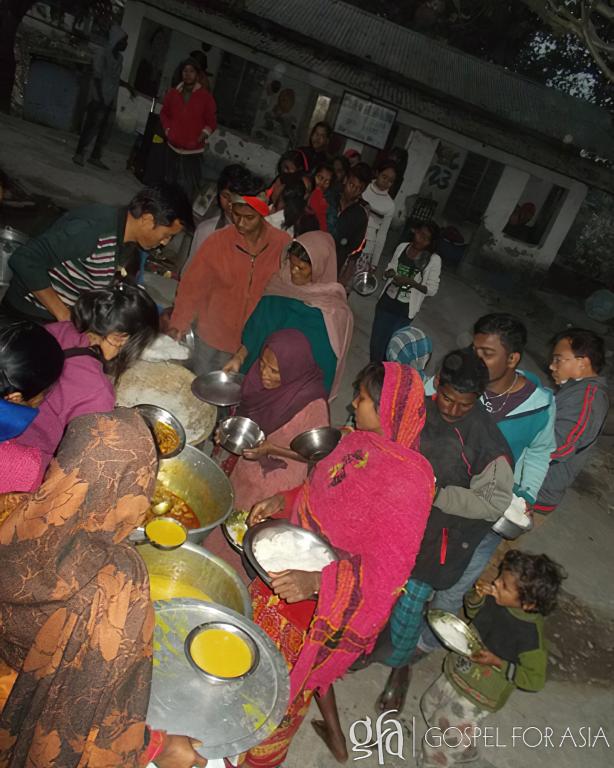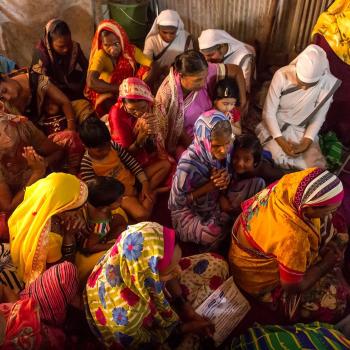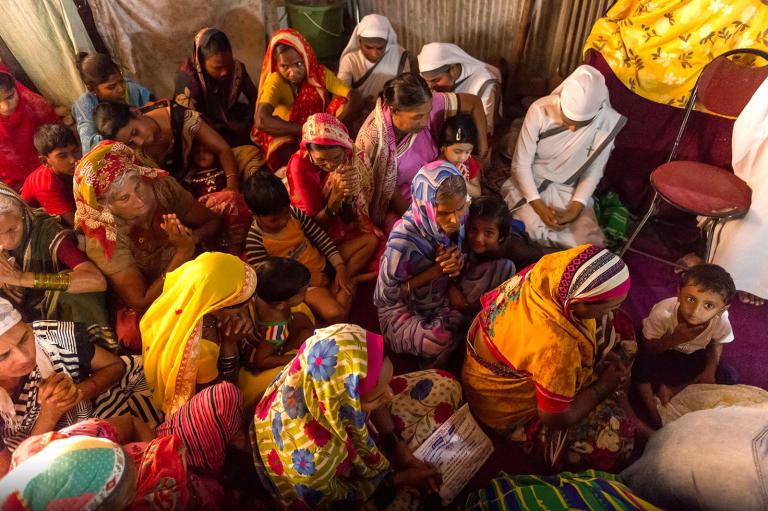WILLS POINT, TX – Gospel for Asia (GFA World) and affiliates Gospel for Asia Canada, founded by KP Yohannan issued the second part of a Special Report update authored by Karen Mains on the chilling reality of missing and murdered indigenous women in North America.
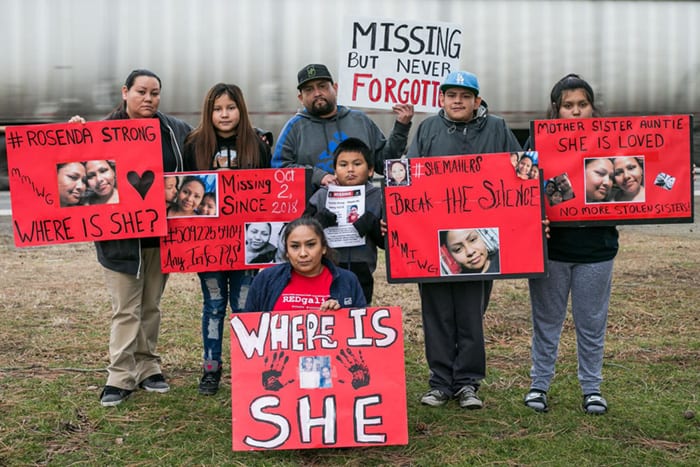
A Personal Experience with One Abused Woman
Decades ago, a friend brought a young woman to our home. She was rough, every cell within her tight with anger, and I was overcome by an inexplicable tenderness for her. Given her unwelcoming exterior appearance, I could only conclude that the Holy Spirit had given me this unaccountable tenderness for someone I never had before met.
“Why did you take me into your home?” she inquired over the phone recently, in that personal attempt we all take as we age to make sense of our previous selves.
“Well, let’s see,” I answered, trying to remember. For the sake of privacy, let’s call this woman, now in her 60s, Jennie. “You needed a place to live, and I needed someone to help with the kids, the house, running errands. And—oh, yes—the love I felt for you was an indication to me that we were supposed to take you in.”
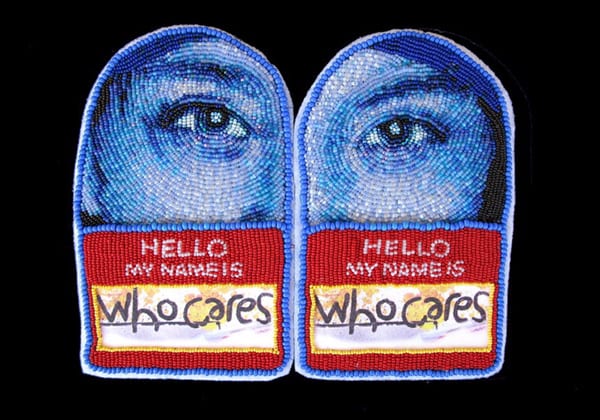
My husband, David, and I (plus our four kids) gave Jennie a safe place, an example of what a pretty healthy family looked like, plus lots and lots and lots of hours listening, answering questions and prayer. At this point, it’s easy to pat oneself on the back and utter a lot of self-congratulation. However, it was Jennie who brought gifts to us. I learned about the capacity of humans to endure untold suffering. I learned about resistance and about the reality of being haunted, if not possessed, by evil strongholds. I learned about the power of love, endurance and eventual gratitude.
Recently, I became ill with an eating disorder, the cause of which a medical team could not identify. Without any intention to do so, I lost 43 pounds. Jennie drove her car 1,000 miles to get to me and stayed for two weeks, pitching in. “I know the routine,” she said upon entering the house. At another time, she flew back across the same 1,000 miles to help me for another two weeks.
You cannot imagine, given our history together, the impact of her prayer on the phone to me. “Dear Lord,” she prayed, her voice still gravelly and sincere, “Karen needs our prayers. I pray that you will bring health back to her again.” I wept on the other end of the line, remembering the once-tight ball of wounded humanity, used again and again by the men in her life from childhood onward to her role as a motorcycle gang moll, this woman who once appeared at my door, brought by a common friend.
And along with the tears, as she prayed, I whispered again and again, Dear Lord … dear Lord … dear Lord. Whenever I get discouraged and begin to question the theology of redemption, in which I am steeped, I remember Jennie.
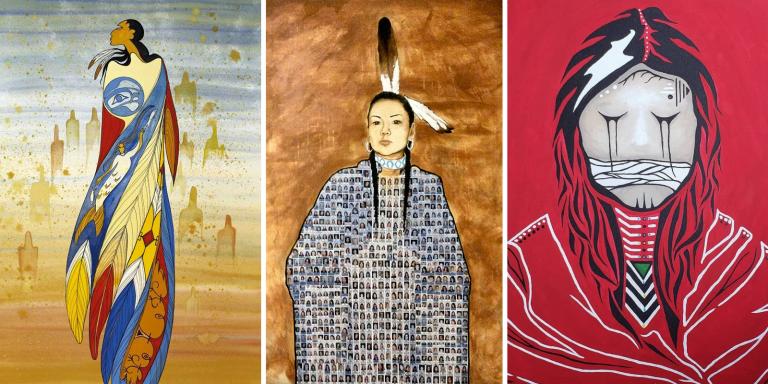
Something Must Be Done
The questions raised by the reality of a large demographic of women of any population facing extinction should impale us on the truth that something serious and radical must be done. However, educating ourselves on the suffering of others requires that we strive to uncover the truths of the whole MMWG landscape.
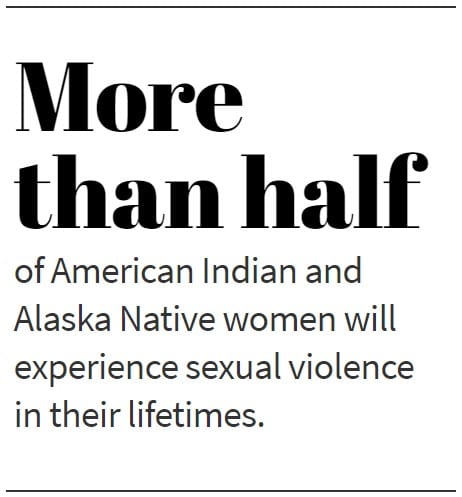 For instance, the first response among analysts as to the cause of high incidence of sexual violation, disappearance or outright murder of females was turned against the nearby males in these indigenous population groups. The consolidated data from some 300 contributing police agencies confirmed this conclusion that some 70 percent of the offenders were of “aboriginal” origin, 25 percent were of non-aboriginal origin, and 5 percent were of unknown ethnicity.
For instance, the first response among analysts as to the cause of high incidence of sexual violation, disappearance or outright murder of females was turned against the nearby males in these indigenous population groups. The consolidated data from some 300 contributing police agencies confirmed this conclusion that some 70 percent of the offenders were of “aboriginal” origin, 25 percent were of non-aboriginal origin, and 5 percent were of unknown ethnicity.
The Native Women’s Association of Canada’s database, which was established in 2005 to track the actual cases of MMIW, concluded that the consolidated data from those 300-some police agencies was in error and gathered from an extremely limited narrow statistical field of only some 32 homicides of indigenous women and girls. The NWCA also determined a bias within the policing community, which appears not to have taken seriously the need to conduct investigations into the actualities of missing women. They preferred instead to consider the problem “a tribal matter” and to conclude that the incidents fell under the purview of local indigenous leadership. Consequently, too many cases had been allowed to “go cold,” and crucial evidence had been lost or discarded.The actual statistical data, such as that gathered by the United States Department of Justice when it focused on the incidence of missing and murdered women among indigenous peoples, determined that this group is, in reality, usually sexually assaulted, stalked and preyed upon by non-natives.
According to the Department of Justice, “More than half of American Indian and Alaska Native women will experience sexual violence in their lifetimes.”
Much of this is due to the fact that jurisdictional issues have historically left legal loopholes leading to non-native rapists and murderers coming to reservations to “hunt” native women with impunity. Simply said, in many jurisdictions, tribal legal systems have historically been confined to territorial boundaries so that tribal jurisprudence cannot exercise sufficient criminal justice over non-tribal members.
The wheels of justice often grind slowly for victims, particularly when the very laws that have been established allow for perpetrators to go unprosecuted. But in recent years, a deliberate attempt at awareness-raising regarding MMIW has finally resulted in a consequent outcry of indignation from news venues, legislators and a recently sensitized public. This has been most heartening.
In 2018 and 2019, legislation began to move through the systems of local governing institutions. Washington, Minnesota and Arizona have taken steps toward building databases that reflect more-accurate statistics on missing and murdered women and girls. The United States declared May 5, 2018, as a national day of awareness. House Bill 2951 of Washington State ordered the state highway patrol to study and report on truths relating to MMIW. And on March 7, 2019, Congress introduced the House of Representatives Bill 1585 to specifically reauthorize the Violence Against Women Act of 1994, which had been eventually repealed. Former Senator Heidi Heitkamp sponsored the bill known as Savanna’s Act to increase cooperation and coordination between “Federal, State, Tribal and local law enforcement agencies,” and this cause has now been reintroduced in 2019 by Senator Lisa Murkowski. The gap created without intra-agency interaction has been analyzed as one of the reasons why murdered and missing indigenous women incidents of violence have fallen through the cracks.
Public Outcry as Activism
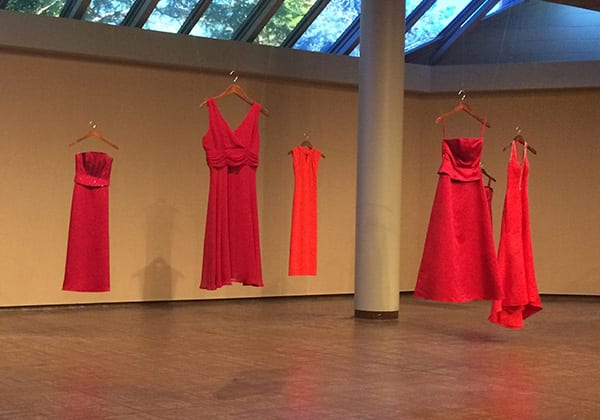
Mostly, what will keep legislative movement and interest alive is public outrage and outcry. A Women’s Memorial March on February 14, Valentine’s Day, was sponsored in downtown Eastside Vancouver, a geographic area notorious for incidents of MMW. These annual marches are intended to highlight the reality of disappeared or murdered women, with family and friends of the missing women, frontline activists and concerned workers stopping at sites pregnant with meaning to memorialize the lives of those who have been lost. The REDress Project is a public art installation where empty red dresses are hung or spread to symbolize those females who are missing or murdered.
In 2015, the body of 15-year-old Tina Fontaine was found murdered and dumped face-down in the Red River in Manitoba. She had been wrapped in a plastic bag that was weighted with stones. The yearly response is a memorial so that people will not forget. Teams of volunteers in canoes and boats search Winnipeg waterways, dragging the waters as a visible demonstration of protest against perpetrators. Running water washes away forensic evidence that leads to conviction.
The Internet is full of faces of the missing. An hour searching these public visual collages will convince any interested party of the numerical incidence of the murdered and the missing. I’ve printed off one of the colored collages of numerous faces and protests and grieving families to help me not forget the hours I’ve spent becoming sensitized to the problem while doing research for this article.
What We Can Do
Perhaps this has become a tiresome reminder: We can do something just by becoming informed.
Those of us untouched by this kind of violence naturally don’t want to know more about it. Information, however, has the possibility of keeping ourselves and our loved ones safe. Of course, we don’t want to see predators behind every tree (or at every stoplight at every lonely road crossing), but we do want to be wise. Pepper spray is a great deterrent. Caution discussions need to be introduced for the extrovert or for the innocent. Self-defense classes need to be taken for the vulnerable, for both men and women.

We can become sensitized.
We can undertake individual or group research studies. Most of us don’t want to delve much into the underbelly of our societies. Too often, we have to force ourselves to read the book, watch the documentary, do the Internet search, make a file of the articles we find in magazines or print off on the home office printer.
If God happens to “drop someone into your lap” (or bring some woman to your front door), be open to that impulse of mercy… if not to bring them into your own family, at least become a listening and encouraging friend. Believe me, if God is in this encounter, you, despite this person’s distress, will be the primary beneficiary.
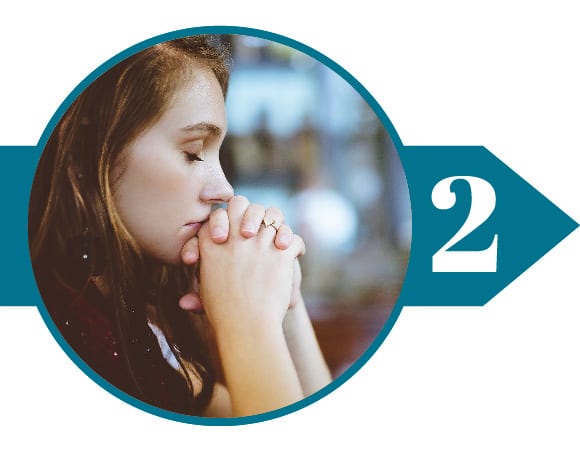
We can pray.
My husband, David, an ordained minister, now in his senior years, is a proficient and organized intercessor. If he says, “I’ll pray for you,” he does. If he says, “I’m praying for you,” he is. His prayer lists are long, and he lingers for loving moments every day over them.
I, however, have always been more spontaneous, praying for folk when I think of them. However, I am convinced that I am not as diligent a pray-er as David. So I’m going to try a new technique. I’m a visual gal: I think a bulletin board of the faces of missing girls and women will stimulate me to keep praying better than a written list in some of the journals I regularly misplace.
The collage of faces and protesters and signs and statistics from one of the Internet pages dedicated to the topic of Missing and Murdered Indigenous Women and Girls will do just fine. Printed off in duplicate, then posted over my writing desk, on the hallway bulletin board, on the pinup board in my office—these should keep me reminded, keep me caring, and warn me not to forget.

We can impose the statistics of violence on each town in which we live.
One day, you too may have the experience (if you haven’t already) of hearing a voice of a woman, a friend you came to love, who survived a horrendous background of abuse, saying on your behalf, “Dear Lord, I pray that you will heal and be near this one I love …”
And then, you too, moved deeply at this evidence of God’s redemptive activity, like me, may find yourself weeping, tears dripping down your cheeks.
Read the rest of Gospel for Asia’s Special Report on An Imaginative Exercise in Empathetic Fear — Think about Living in a Community with Missing and Murdered Indigenous Women: Part 1
Learn more about Gospel for Asia’s programs to combat the 100 million missing women reality by helping women through Vocational Training, Sewing Machines and Literacy Training.
This Special Report article originally appeared on GFA.org
Read another Special Report from Gospel for Asia on 100 Million Missing Women.
Learn more about the Women Missionaries who are bringing hope as they share Christ’s love to women in Asia.
Read more on the missing and murdered indigenous women dilemma on gender imbalance and violence against women on Patheos.
Click here, to read more blogs on Patheos from Gospel for Asia.
Learn more about Gospel for Asia: Facebook | YouTube | Instagram | LinkedIn | SourceWatch | Integrity | Lawsuit Update | 5 Distinctives | 6 Remarkable Facts | 10 Milestones | Media Room | Poverty Alleviation | Endorsements | 40th Anniversary | Lawsuit Response |
Notable news about Gospel for Asia: FoxNews, ChristianPost, NYPost, MissionsBox


